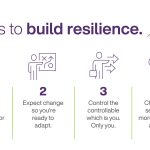
Postpartum depression is a serious mental health condition that affects many new mothers. It can be overwhelming and isolating, but it is important to know that you are not alone and that help is available. If you are struggling with postpartum depression, it is crucial to seek support and treatment to overcome this challenging period in your life.
Recognizing the Symptoms
Postpartum depression can manifest in many different ways, but some common symptoms include feelings of sadness, hopelessness, irritability, and guilt. You may also experience changes in your appetite, sleep patterns, and energy levels. It is important to recognize these symptoms early on so that you can seek help and begin the healing process.
Seeking Professional Help
One of the most effective ways to overcome postpartum depression is to seek help from a mental health professional. A therapist or counselor can provide you with the tools and support you need to manage your symptoms and work through your feelings. They can also help you develop coping strategies and create a treatment plan that is tailored to your individual needs.
Medication and Therapy
In some cases, medication may be necessary to treat postpartum depression. Antidepressants can help regulate your mood and alleviate symptoms of depression. Therapy, such as cognitive-behavioral therapy or interpersonal therapy, can also be beneficial in helping you understand and change negative thought patterns and behaviors.
Join a Support Group
Connecting with other mothers who are going through similar experiences can be incredibly helpful in overcoming postpartum depression. Support groups provide a safe and nonjudgmental space for you to share your feelings, receive advice, and form meaningful connections with others. This sense of community can be a powerful source of strength and support during a difficult time.
Self-Care and Lifestyle Changes
Self-care is essential in managing postpartum depression. Taking care of yourself physically, mentally, and emotionally can help alleviate symptoms and improve your overall well-being. This may include getting regular exercise, eating a balanced diet, getting enough sleep, and engaging in activities that bring you joy and relaxation.
Reaching Out to Loved Ones
It is important to lean on your loved ones for support during this challenging time. Talking to your partner, family members, and friends about how you are feeling can help you feel understood and cared for. They can offer emotional support, practical help with childcare, and a listening ear when you need it most.
Stay Positive and Patient
Overcoming postpartum depression is a process that takes time and effort. It is important to be patient with yourself and to stay positive as you navigate through this difficult period. Remember that with the right support and treatment, you can recover and emerge stronger than before.
Conclusion
Postpartum depression is a common and treatable condition that many new mothers experience. By recognizing the symptoms, seeking help from a mental health professional, joining a support group, practicing self-care, and reaching out to loved ones, you can overcome postpartum depression and emerge stronger and more resilient. Remember that you are not alone, and that help and support are available to you. Stay positive, stay patient, and know that brighter days are ahead.
This article provides valuable information and resources for new mothers who are struggling with postpartum depression, highlighting the importance of seeking help, support, and treatment in overcoming this challenging condition. By following the advice and strategies outlined in this article, new mothers can navigate through postpartum depression successfully and emerge stronger and more resilient on the other side.





